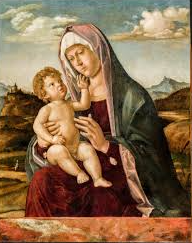
A riveting and campy political thriller where Fiennes stands out as a conflicted cardinal caught in a web of intrigue.
Who would have thought that a simple process of repeatedly voting could become so thrilling and utterly entertaining? In Edward Berger’s The Conclave, based on Robert Harris’s gripping novel and adapted by Peter Straughan, the election of a new pope unfolds as a high-stakes drama filled with tension and dark humour. At the centre of it all is Ralph Fiennes, who gives an utterly compelling performance as Cardinal Lawrence, an English prelate navigating the complex, murky world of Vatican politics.
Fiennes’s portrayal of Cardinal Lawrence is magnetic, portraying a man with deep inner turmoil and a crisis of faith. Although Lawrence is based on an Italian character in Harris’s book, Straughan reimagines him as an Englishman—a subtle but impactful change that adds layers to his internal struggle. Lawrence is on the verge of becoming the first English pope in history, though this fact is never openly acknowledged, reflecting the delicate diplomacy at play.
The drama kicks off as the ailing pope lies on his deathbed, with several ambitious cardinals manoeuvring to secure the coveted papacy. As the election, or conclave, nears, Lawrence finds himself surrounded by a group of power-hungry churchmen, each with their own secrets and hidden agendas. In this intense political arena, there’s no shortage of fascinating personalities, brought to life by a stellar supporting cast: Stanley Tucci as the progressive Bellini, Sergio Castellitto as the conservative, bigoted Tedesco, John Lithgow as the charming but deceptive Tremblay, and Lucian Msamati as the bullish Adeyemi. Yet, it’s Isabella Rossellini who steals the show as Sister Agnes, the late pope’s confidante, whose sharp mind and mysterious presence overshadow even the most powerful cardinals.
Cardinal Lawrence is burdened not only by his personal doubts but by the eerie suspicion that dark forces are at play in the selection process. Fiennes conveys this inner conflict with depth and subtlety, his eyes often reflecting a sea of unspoken emotions. Lawrence’s wish to resign from his post as dean of the College of Cardinals is unfulfilled, and he finds himself entangled in a dangerous game where the wrong person might ascend to the papacy. As Lawrence reluctantly becomes the key supporter of Bellini’s candidacy, his own votes begin to stack up, leaving him grappling with the question: is this his destiny, or is he being manipulated by unseen forces?
The film’s tension is expertly crafted by Berger, whose direction keeps the viewer on edge, while cinematographer Stéphane Fontaine and production designer Suzie Davies create visually striking, dreamlike scenes that heighten the surreal atmosphere. Despite the grandeur of the setting, there’s something unsettling about seeing the sacred process of papal voting brought to life on screen. It adds a layer of irreverence, reminiscent of Nanni Moretti’s We Have a Pope (2011), where the sanctity of the papal election is disrupted by the human drama unfolding around it.
Fiennes’s performance is a highlight, particularly in a memorable scene where his character learns a shocking secret about one of the other cardinals. His reaction—sitting down, mouth slightly agape—is a masterclass in restrained emotion, evoking both surprise and dread in equal measure. While some might say Fiennes has a certain resemblance to a 1970s TV comedy actor, his ability to convey the gravity of the situation without overplaying it makes him a standout in the ensemble. In the end, the conclave becomes a suspenseful, high-octane race to the papacy, with Fiennes’s character at the heart of it all, torn between his moral integrity and the lure of power. As the dramatic finale approaches, the film builds to a thrilling, photo-finish climax that will leave audiences captivated.
The Conclave is a superbly crafted political drama, driven by a brilliant performance from Ralph Fiennes and an intriguing exploration of Vatican intrigue, power struggles, and moral dilemmas. It’s a thrilling, high-camp ride that expertly mixes suspense and dark humour, offering a fresh take on the drama of papal elections.









